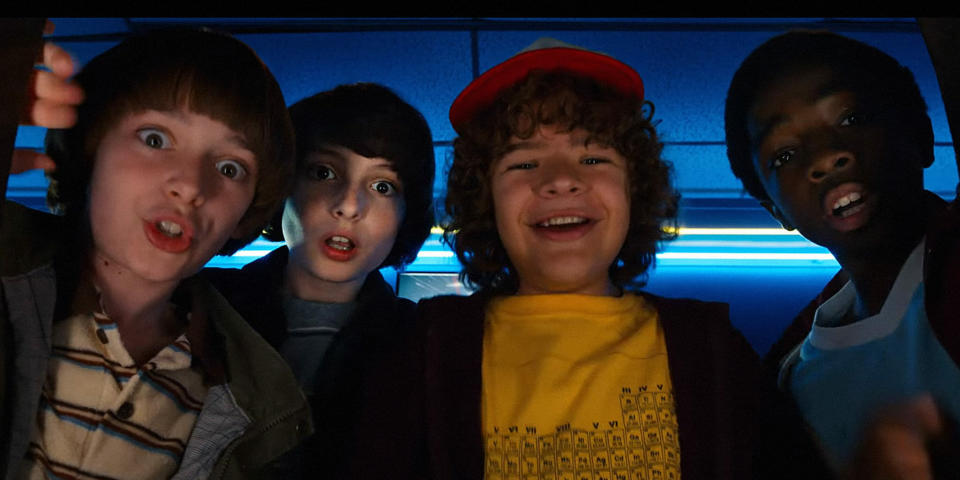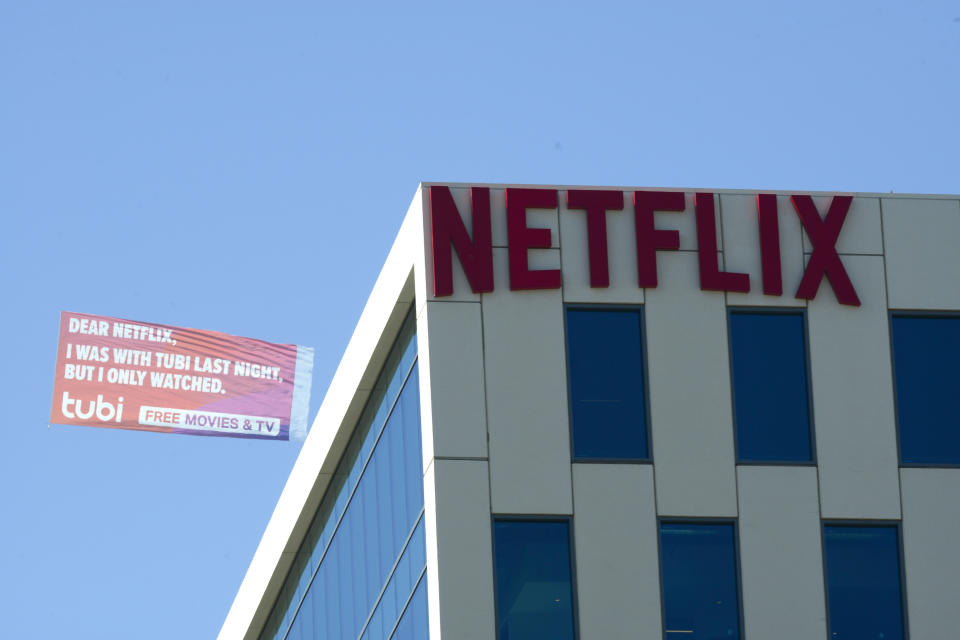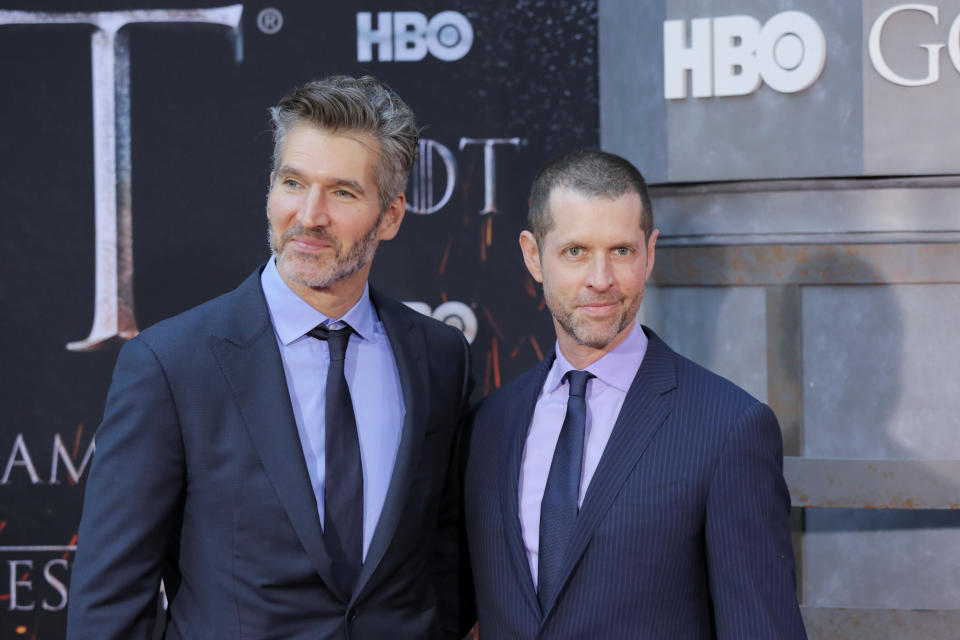Why is Netflix cancelling so many shows?

Oh, Netflix. First One Day at a Time, then Tuca and Bertie, and now The OA - the service’s recent cancellations seem designed to get them trending on Twitter, and not in the good way.
There’s a strong chance you’ve had some form of hashtag protest against Netflix popping up into your social media timeline this month, mostly because these shows have a very vocal fanbase.
Unfortunately for them, it’s a vocal minority. Despite critical acclaim and meme support for both series, neither was commercially viable enough to sustain at the streaming service - it might seem like a lot of anger, but compare the reaction to The OA ending to Game Of Thrones’ finale, and you’ll see the difference.
NOT TO DO THIS IN THE FUTURE... So? #RenewTheOA #SaveTheOA pic.twitter.com/u4z0HHNAZC
— EugenieA (@AVRIL04656044) August 6, 2019
The OA made it into the zeitgeist to a certain extent, but making the front page of a Reddit theories forum thread isn’t quite the same as making the third page of the Metro (an achievement Game Of Thrones pulled off repeatedly).
Read more: MINDHUNTER S2 trailer: David Fincher's FBI drama returns
But perhaps there’s a reason for that. The OA was cancelled after two seasons, Tuca and Bertie after just one. How are these shows expected to grow an audience if they’re not given time? Even Game Of Thrones took a few seasons to truly make it into the mainstream, with several dedicated fans and one Red Wedding tipping it into must-see TV.
Netflix must know that, but they’re cancelling shows anyway. Why? We’ve got a couple of theories, one that reflects badly on the future of the service, and one that’s actually very good news.
Let’s start with the negative.
It’s the algorithm’s fault

Netflix’s streaming service transformed the way we watched TV. Its clever algorithm scans what you see, and throws up suggestions for similar stuff from the past, present and - increasingly - the future.
The problem is, that’s no way to build an audience. If we only encountered shows we knew we liked, half the world probably wouldn’t have bothered with Game Of Thrones (there was a time when fantasy telly was looked down on by the sort of people who series-record Love Island, believe it or not).
For the weirder shows (and often, the biggest TV successes seem weird on paper - The X-Files, Buffy, even Star Trek when it launched) that’s a big issue.
It’s also a problem for the smarter shows. The OA looked like you needed a degree in quantum yoga to fully understand it, let alone enjoy it, but with a more approachable (and meta) plotline signposted for season three, who knows what it could have ended up being? Even the people it popped up for didn’t give it a chance, and the way the system works, if you don’t jump on a title, it stops being recommended.
The same goes for Happy!, Friends From College, Disjointed, Flaked, Sense8, American Vandal, and so many other shows (an astonishing 34 in total) that were cancelled by the service after two seasons.

But there’s a twisted logic to cancelling shows after a couple of seasons, based on the way the algorithm works. New shows appear in everyone’s feed, as part of the ‘New on Netflix’ section. That means it makes more sense for the service to launch a new series than to carry on with an old show that isn’t yet appearing in the top 10 week after week.
If this really is what’s driving Netflix’s cancellations, then the future for the service is very bleak. There are already signs that fans have had enough of investing their time into narratives that never end satisfyingly, with subscriber numbers dropping this month for the first time since 2011.
And with Disney+ looming on the horizon like a mouse-shaped star destroyer, it seems a very strange time to be ditching original series that people care about, even if the audiences are small.
But perhaps there’s a method to the madness. It could be that Netflix is clearing the decks for an exciting new era, one that’ll bring its lost subscriber base back, even after the MCU explodes onto streaming.
Netflix are thinking about the future

Today’s announcement that Game of Thrones showrunners David Benioff and D.B. Weiss have signed a 'nine-figure' deal with Netflix is the clearest signal that all of these recent cancellations are part of a significant strategy shift for the streaming giant.
Where before Netflix once seemed to be throwing money at any new creator with a good idea - and it’s what turned Stranger Things, arguably their only original that comes close to being part of the golden age of TV, into a hit - now they’re shifting towards a model that’s more recognisable in the context of the rest of the entertainment industry. They’re bringing in proven talent.
D&D join Shonda Rhimes (Grey’s Anatomy, Scandal), Ryan Murphy (American Horror Story, American Crime Story, Glee, Nip/Tuck), and Kenya Barris (Black-Ish, America’s Next Top Model), all of whom have been signed up exclusively on huge long-term contracts.
Read more: The OA fans petition to save the Netflix show after season 3 axe
We’ll get our first look at Ryan Murphy’s opening Netflix gambit, The Politician, on 6 September. The show has an impressive cast, which includes Gwyneth Paltrow, Jessica Lange, January Jones, and Bette Midler, and it’s about a student who’s decided he’s going to be President one day, and will do anything to achieve that goal. Sounds like House Of Cards meets Glee and could be another winner for Murphy.
It could also be an extreme turning point for Netflix, mere months before Disney+ launches. Let’s hope it’s good, if only because we’d like to see it hit three seasons (and maybe even beyond - imagine that!)
The Politician launches on Netflix worldwide on 6 September.

 Yahoo Movies
Yahoo Movies 

